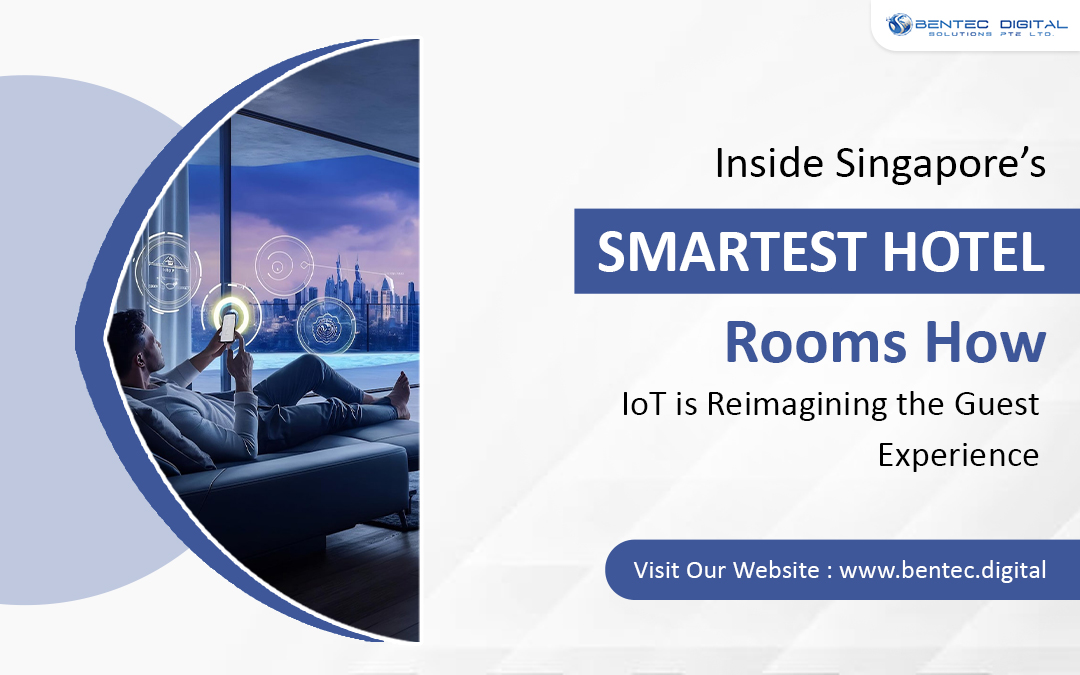As Singapore continues to advance the boundaries of the regional digital revolution, the hotel industry itself is transforming. Pioneering this development are Smart Hotel Singapore experiences—luxury reimagined through seamless IoT connectivity. Smart hotel rooms not only extend comfort but reorganize efficiency, customization, and sustainability in real-time.
Redesigning Guest Comfort with IoT
IoT has ushered in the age of hyper-personalized experience. In a Smart Hotel Singapore environment, guests are no longer mere occupants. Rather, their choices define their surroundings. From room lights and temperature to entertainment and blinds, all become voice-controlled, smartphone app-controlled, or even pre-set guest profiles.
These smart settings adjust dynamically, creating a personalized setting to match every guest’s mood and agenda. The intelligent integration goes beyond convenience. Intelligent sensors track activity to enhance lights and climate control, using energy when rooms are not in use. Even bathroom appliances modify water pressure and temperature with prudence, making use of resources to their maximum capacity.
The Major Characteristics of IoT-Enriched Hotel Rooms
- Automated Room Controls: Lights, thermostats and curtains—these are remotely controlled by phone or automatically.
- Voice Assistant Integration: Enable all in-room services to be accessed with no hands.
- Smart Entertainment Systems: Guest profile content suggestions and personalized streaming channels.
- Sensors that are Energy-Efficient: Spend less without compromising on luxury.
- AI-Assisted Housekeeping Notices: Sensors monitor the movement of guests to notify the staff when the guests require housekeeping besides taking into account privacy and efficiency.
Optimizing the Guest Experience: Check-In to Check-Out
The effects of IoT in the hotel industry are experienced prior to the entry of a guest into a room. Contactless check-in technology enables guests to skip reception desks altogether. Their mobile phone is turned into a digital key, opening doors and engaging in-room devices the moment they get there. Within the room, guests have the ability to control the room from one dashboard, whether by tablet interface or wall panels.
Amenity information, dining options, and city tips are on offer and aligned to guest preferences. As part of a Smart Building Singapore network, the hotel platform also picks up on guest behavior, providing an even more personalized experience on repeat stays.
- Contactless check-in and virtual room key
- Centralized control console (wall display or tablet)
- Personalized amenities and dining options
- Personalized city guides based on preference
- Dynamic guest profiles for repeat stays are optimized
Sustainability as a Fundamental Aspect
The move towards IoT-enabled spaces is part of Singapore’s green infrastructure vision. Smart Building Singapore solutions focus on the conservation of energy, and hotel rooms are rapidly emerging as demonstration sites for the same. Smart occupancy sensors prevent wastage of energy, and data analytics monitor patterns to enhance building performance as a whole.
Devices that conserve water, temperature automation systems, and prognostic maintenance systems all contribute to producing fewer environmental impacts. Such features, however, contribute to sustainability in addition to improving cost-effectiveness operations in the long term.
The Bottom Line: The Future of Smart Hospitality
With evolving digital infrastructure, we anticipate increased innovation within Singapore Smart Hotel experiences. Integration with broader smart city infrastructure will mean real-time transit data, dining recommendations based on guest choice, and wellness-centered room conditions—all powered by guest data exchanged securely between linked platforms. In this new age of smart travel, hotel rooms are no longer mere sleeping quarters. However, when considering them from the perspectives of convenience, luxury, or sustainability, intelligent hotel rooms are establishing a new standard—not only in hospitality, but in the future of Smart Building Singapore technology.
